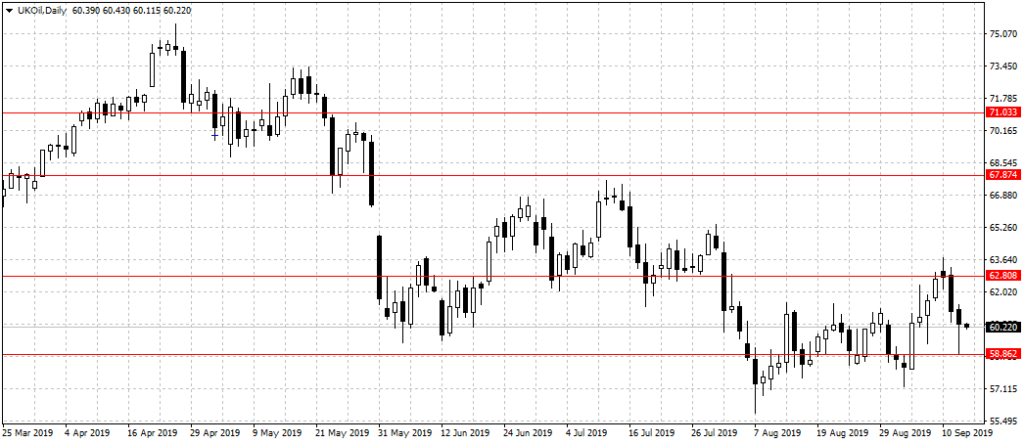Economy
Oil Falls as OPEC Lowers 2020 Demand
- Oil Falls as OPEC Lowers 2020 Demand
Global oil prices continue to decline amid waning demand following the Organization of the Petroleum Exporting Countries reassessment of global oil demand.
Oil prices jumped on Monday after Saudi Arabia new energy minister and OPEC representative said the kingdom was committed to OPEC accord.
However, the surged in demand that bolstered Brent crude oil to $62 a barrel didn’t last long as OPEC reassessment shows oil demand would drop in 2020 by 60,000 barrels a day to 1.08 million barrels per day.
This, the cartel attributed to slowing global economy as the two world’s largest economies, the US and China, failed to reach an agreement despite holding several meetings.
The Brent Crude, against which Nigerian oil is priced, dropped from over $63 per barrel on Tuesday to $60.22 as at the time of writing on Friday.
 While the US West Texas Intermediate (WTI) crude oil declined from $58.68 a barrel to $55 on Friday.
While the US West Texas Intermediate (WTI) crude oil declined from $58.68 a barrel to $55 on Friday.
The International Energy Agency (IEA) on Thursday said increasing global oil supply, especially from the US will push oil prices lower in 2020.
“While the relentless stock builds we have seen since early 2018 have halted, this is temporary,” the IEA said. Soon, it predicted, the Opec+ group, which includes Russia, will “once again see surging non-Opec oil production with the implied market balance returning to a significant surplus and placing pressure on prices.”
Meanwhile, in an effort to boost prices and reduce global oil glut, OPEC has compelled Nigeria and Iraq to lower production in accordance with the December 2018 agreement.
Nigeria is producing above 1.9 million barrels per day while Iraq continues to produce above its 4.512 million barrels per day — OPEC’s target.
Timipre Sylva, Minister of State for Petroleum Resources, said Nigeria has agreed to lower crude oil production following months of nonconformity.
“We have agreed to comply with production cuts of 50 per cent this month and 100 per cent from October this year,” Sylva stated.